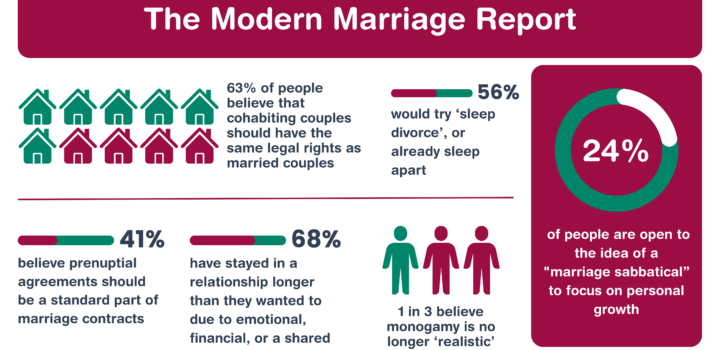What rights do grandparents actually have?
Grandparents are not afforded any special rights or status under the Children Act 1989 – the legislation dealing with applications in respect of children. Classified as a ‘relative’, grandparents can in certain circumstances, make applications for what is now known as a Child Arrangements Order (CAO).
Amongst other things, CAOs will establish where a child lives, in what proportions (if shared between parents/parties) and/or the time a child spends with a parent/relative.
The concepts of ‘living with’ or ‘spending time with’ replaced what we referred to a few years ago as applications for residence and/or contact. Grandparents are likely to know/remember the terms ‘custody’ and ‘access’.
It is worth noting that the relationship as grandparent can be established by a full or half-blood relationship or through marriage/civil partnership. However, grandparents will not have an automatic right to have a child of the family spend time and/or live with them. If this is opposed by anyone with Parental Responsibility (i.e. usually one or both parents), then the grandparent will first need to apply for permission. Permission, however, is not required where the child has been living with the grandparent for a certain period of time prior to the application.
How can grandparents enforce these rights?
The court’s permission for what is known as ‘leave to apply’ will usually be granted in the following circumstances:-
- Where the grandparent already has a CAO determining that a child lives with them;
- Where the child has lived with the grandparent for three years in the last five and within the previous three months;
- Where a child is in care and where they have the Local Authority’s consent; or
- Where the grandparent has the consent of all those who have parental responsibility for the child in question.
Whilst grandparents’ rights may appear limited, the restrictions are there very simply to offer some protection to families against unwarranted interference and of course, potential harm to children.
Leave to apply – the criteria
In making its decision the court will want to consider:-
- The nature of the proposed application;
- The grandparent’s connection with the child;
- Any risk of that proposed application disrupting the child’s life and causing harm; and
- Where the child is being looked after by a Local Authority:
- The Authority’s plan for the child’s future; and
- The wishes and feelings of the child’s parents
It is important to note that permission to apply does not automatically lead to a substantive application for a CAO. Once permission has been granted, the grandparent can continue to engage in discussions with the parents and/or consider Alternative Dispute Resolution (ADR) such as mediation.
The substantive application
Where a grandparent does make an application, this will revolve around the specific facts of the case and the consent/opposition of the parent(s) and also where applicable the wishes and feelings of the child in question.
The court is more interested in why the child’s relationship with the person applying is important (i.e. the grandparent), not the other way around. The Court will always focus on the child’s best interests will refer to the ‘Welfare Checklist’:
- The ascertainable wishes and feelings of the child concerned (considered in the light of the child’s age and understanding);
- The child’s physical, emotional and educational needs;
- The likely effect on the child of any change in his/her circumstances;
- The age, sex, background and any characteristics of the child which the court considers relevant;
- Any harm which the child has suffered or is at risk of suffering;
- How capable each of the child’s parents, and any other person in relation to whom the court considers the question to be relevant, is of meeting the child’s needs.
An application will also trigger the appointment of an officer from the Children and Family Court Advisory and Support Service (Cafcass) to report to the court any initial discussions/conciliation attempts between the parties and the child, and make recommendations to the court.
What are some of the most common reasons grandparents are denied access?
A difficult and often unrecognised consequence of family/relationship breakdown can be children losing or being deprived of the time previously spent and enjoyed with grandparents. In many instances, contact will resume once matters and issues have stabilised between the children’s parents. Where long term acrimony remains present, however, grandparents may need to take a proactive approach to protecting and/or re-establishing a relationship.
It is important for grandparents caught in these situations to remain impartial and not be seen to be partisan. If there is a significant degree of hostility between the grandparent and a parent with care, the court may consider that contact would not be in a child’s best interest.
The most recent case law surrounding applications made by grandparents indicates that the court will no longer apply a general presumption that a child should live with their natural parents. As noted above, the paramount consideration of the court when looking at all the circumstances, will always be children’s welfare – this may mean living with a grandparent.
In the past, the age of a grandparent has often come in to consideration. However, in more recent cases, age is rarely a factor.
How is the situation different at all if the child’s parents have separated or one or both of the child’s parents have passed away?
As noted above, the difficulty when faced with separated parents is opposition/hostility by the parent with care. However, if the child spends time and/or also lives with their other parent, there is usually an opportunity for the child to spend time with their grandparents during that time.
In circumstances where one parent is deceased then hopefully the other parent would recognise the importance of grandparents remaining part of children’s life and facilitate contact. Where this is not the case, how the court deals with this will depend on the full range of facts and circumstances. It always comes back to the Welfare Checklist and what appears to be in the children’s best interests at the time.
Where both parents are deceased, the grandparents are likely to be the first consideration for taking over care, where the parents may not have nominated guardians or have other suitable/willing relatives. However, testamentary guardianship in wills can be revoked by the court and therefore can always be challenged by grandparents. Of course, disputes can then ensue between maternal and paternal grandparents as to where orphaned children should live.
Where a Local Authority is involved or there is a suggestion that the child should be cared for by someone other than a family member, the court will usually make its decision on the basis of a presumption in favour of a placement within the wider family, rather than removing the child from the family altogether. This means that a grandparent will usually be well placed in an application for a ‘living with’ Order under a CAO, where it is in competition with or opposed by a non-relative.
What are the options grandparents can take if they’re denied access and what are the pros and cons of each? Have you any specific advice for dealing with this in a way that doesn’t affect the child?
The Court’s general principle in children matters is that it will not interfere unless it is required to and will always be aiming to guide the parties to agree matters by consent wherever possible.
The first step to be considered where the breakdown of a relationship has occurred, whether it is between parents, or even between a grandparent and a parent, is to attempt direct discussions and consider approaching the child’s mother or father at an early stage.
Where the relationship breakdown is between parents, it is important to make clear early on that there is no intention to take sides, but simply wish to maintain contact with a grandchild. In cases where this does not prove possible, then the next step should be a referral to mediation. Whether this is a suitable option is dependent upon the facts, but a trained mediator may be the answer to facilitating a solution.
It is a requirement, prior to any application for a CAO, to attend a Mediation Information and Assessment Meeting (MIAM) in order to explore and seek to initiate mediation.
This does, of course, require a willingness from all the parties involved to engage in the process. This can take the shape of ‘whole family’ sessions facilitating discussions/agreements between grandparents, parents, as well as the children (if appropriate).
One of the most common barriers to grandparents being able to take formal action are the legal costs involved. In the face of hostility from a parent, legal steps and/or court applications can, unfortunately, become prohibitively expensive.
The neutral/charity based online resources available are limited on this topic but a useful starting point may be www.cafcass.gov.uk for a general overview of children legal issues and resources. There are a number of helpful/informative private solicitors’ pages/articles to refer to online. Before taking any steps, briefly discussing matters with a specialist Family Law solicitor is likely to be helpful without incurring any costs/commitment.
For more information on the issues raised in this blog please do not hesitate to contact one of the team at Rayden Solicitors.
















